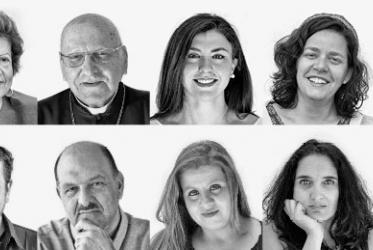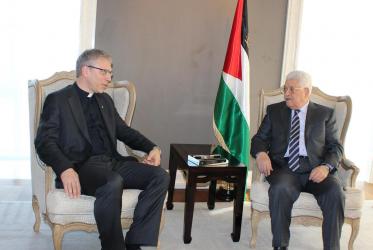Displaying 141 - 160 of 307
27 September 2017
WCC seeks #JusticeAndPeace in the Holy Land
20 June 2017
Pentecost is time to pray for unity and just peace
05 June 2017
WCC general secretary meets with Palestinian president Mahmoud Abbas
26 February 2017
WCC general secretary reflects on peace in Palestine and Israel
20 September 2016








